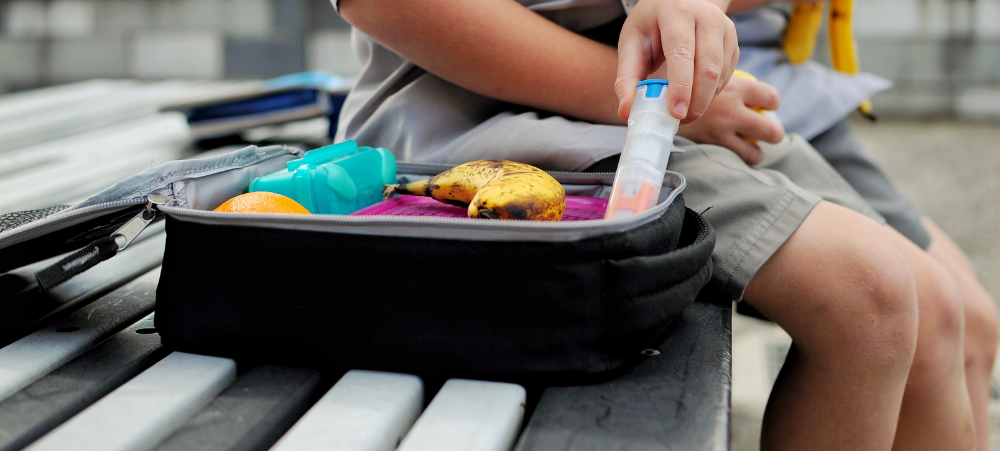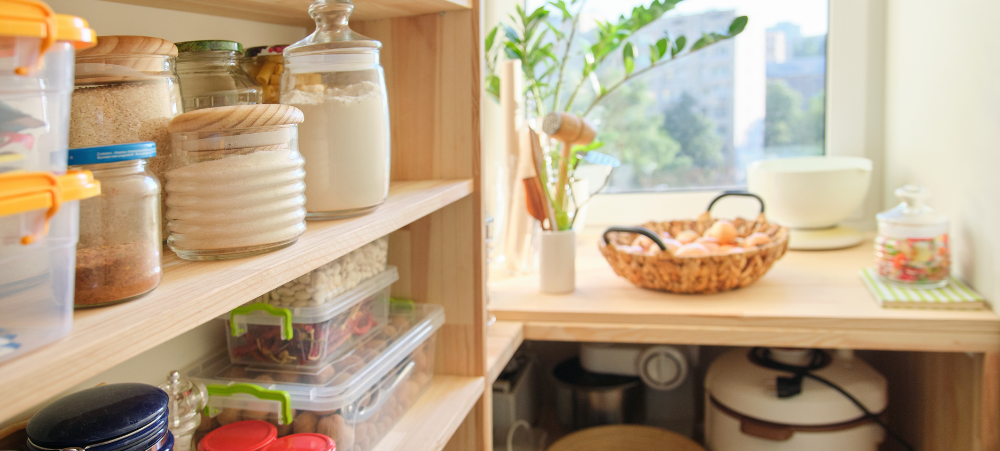Raising a child with food allergies can be daunting and definitely requires extra time, attention, and effort. There are, however, a number of measures you can take to alleviate stress while maintaining a safe eating environment for your baby. Know that you are not alone in this effort. According to the Centre for Disease Control (CDC), food allergies are on the rise, with about 1 in 13, or 8 %, of children being allergic to at least one food. The good news is that the rise in food allergies has led to increased allergy awareness, education, regulation, and labelling; as well as more allergy-friendly restaurants and food allergy policies in schools and day cares. First and foremost, always be your own detective when it comes to food allergens, and never make assumptions based on word of mouth or past experiences. Reading labels (when available) is critical but know that food ingredients and menu items can change, even in longstanding products. Keep in mind that allergens may not be obvious – they can (and do) hide in coatings, thickeners, spices, natural flavours and other ingredients found in fresh, frozen, refrigerated and shelf-stable foods, salad bars and restaurant meals. Did you know that germ, seitan, and tabbouleh all contain wheat? When in doubt, ask! Ask the staff of grocery stores, restaurants and food manufacturing companies to get all the facts. Also keep an eye open for market recalls due to cross contact, which is when an allergen comes into contact with, and therefore contaminates, another food or food product. Cross contact can occur in manufacturing facilities, restaurant deep fryers, deli meat blade slicers, ice cream scoops, prep bowls, even the cutting boards in your own home. Cross contact is a serious issue, as even a tiny amount of an allergen is enough to cause a reaction in some people. Strategies for eating at home Preparing more foods at home is a smart strategy for maintaining greater control over your child’s food sources, minimising cross contact, and limiting their processed food consumption. Not to mention that limiting processed foods is generally an additional boost to their good health since processed foods tend to be higher in salt, sugar, and fat. When food shopping, read labels carefully. Foods containing major allergens must clearly declare those allergens on the label. The allergen will be stated either in parenthesis after a particular ingredient (for example, albumin (egg), lecithin (soy)) or listed at the very end of the ingredient list proceeding the word “contains” (for example, “Contains egg and soy”). Strategies for eating out When eating out, there is no shame in speaking with your waiter about your child’s dietary restrictions and asking for a detailed ingredients list. If a waiter cannot answer your questions, then ask to speak with the chef or a manager. The chef knows exactly what goes into each dish, and in many cases, they will be able to create a dish not listed on the menu, or change one of the dishes on the menu to accommodate your child’s allergy. We also recommend, when feasible, calling a restaurant in advance, during slower service times – such as at 11am before the lunch rush, or 5pm before the dinner rush – to plan ahead. Managing a food allergy may seem daunting at times, but there are some simple steps you can incorporate into your daily life to both protect your child, and maintain your sanity. Basic steps you can take to protect your child: Read food labels Always check ingredient lists. Don’t hesitate to ask chefs, waiters and manufacturers about any unfamiliar or ambiguous ingredients (like spices or natural flavours). Inform anyone handling your child’s food about specific allergies Educate caregivers and schools about your child’s specific allergies and be ready to strategise with them. It is very important that your child’s teachers, principal and friends know about their allergy. If your child is of an age where they visit or sleep over at friends without your presence, talk to their friend’s parents, and pack them a lunch box or home-prepped dinner to ensure they don’t eat anything they’re not supposed to (this will also help out the other parent who may be nervous about cooking for a child with allergies). Be prepared to combat exposure to an allergen Keep antihistamine and epinephrine (if prescribed by your physician) with you (or with your child if they are away from you) at all times. Consult with your paediatrician and/or allergist to have a plan of action in place should exposure to an allergen occur. Ensure you have the necessary medication in various places, so that you can get quick access regardless of where you are. For example, keep medication at home in the first aid kit, keep some in your handbag for when you are out, in the cubby hole of your car and ensure your child’s teacher has a supply and knows how to issue it to your child. Older children should also carry their own medication with them and should be taught when and how to take it if necessary. Avoid riskier food choices Buffets, bakeries and restaurants with pre-made foods are full of potential allergy pitfalls. Ask questions, or avoid these establishments altogether. Spread the word Carry cards that list your child’s food allergies and hand them out to caregivers, waiters, chefs, family members, babysitters and more! For severe allergies, you might also want to have an allergy medical alert bracelet made for your child. Plan ahead! And take special precautions when traveling Call restaurants in advance and speak to the manager to find out if your child’s food needs can be accommodated. Pack safe, non-perishable foods and snacks just in case. Also be sure to notify airline attendants, hotel agents, and visiting family members of any allergies when traveling (if traveling abroad, you can purchase translation cards made for this purpose). Cook at home more often and eat fewer processed foods Taking these steps alone will lessen the risk



































